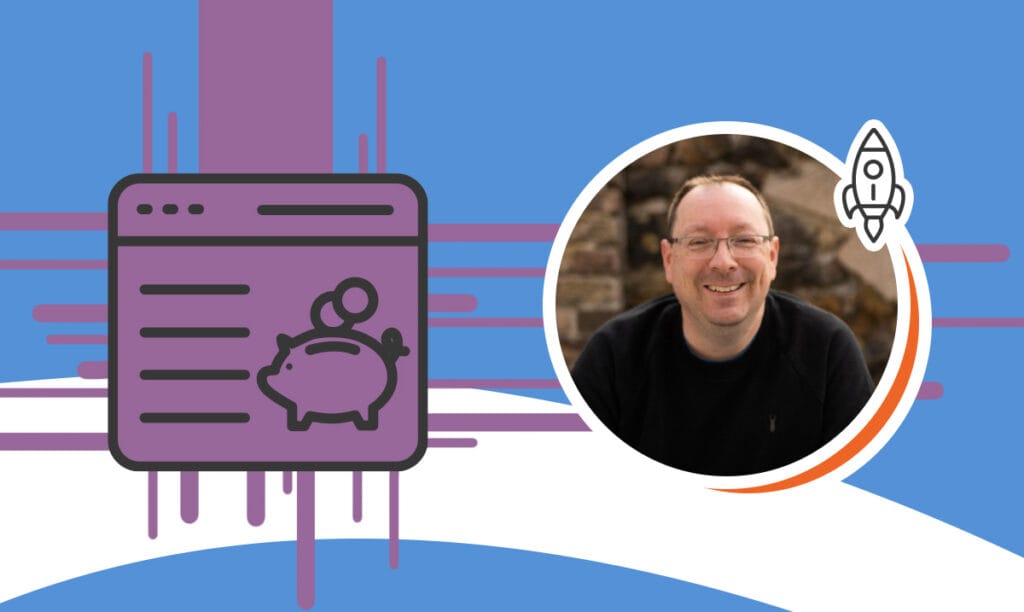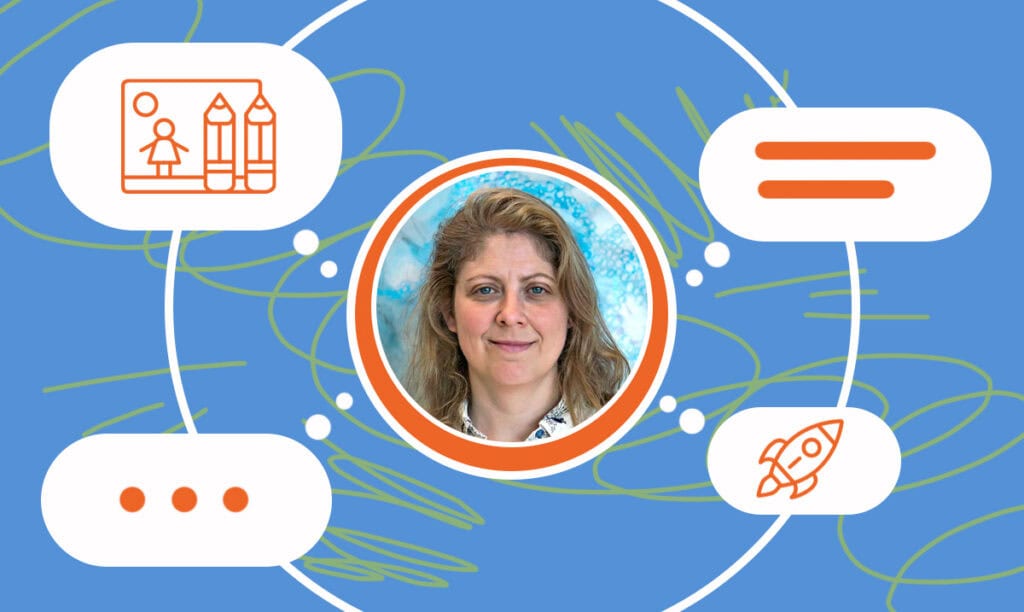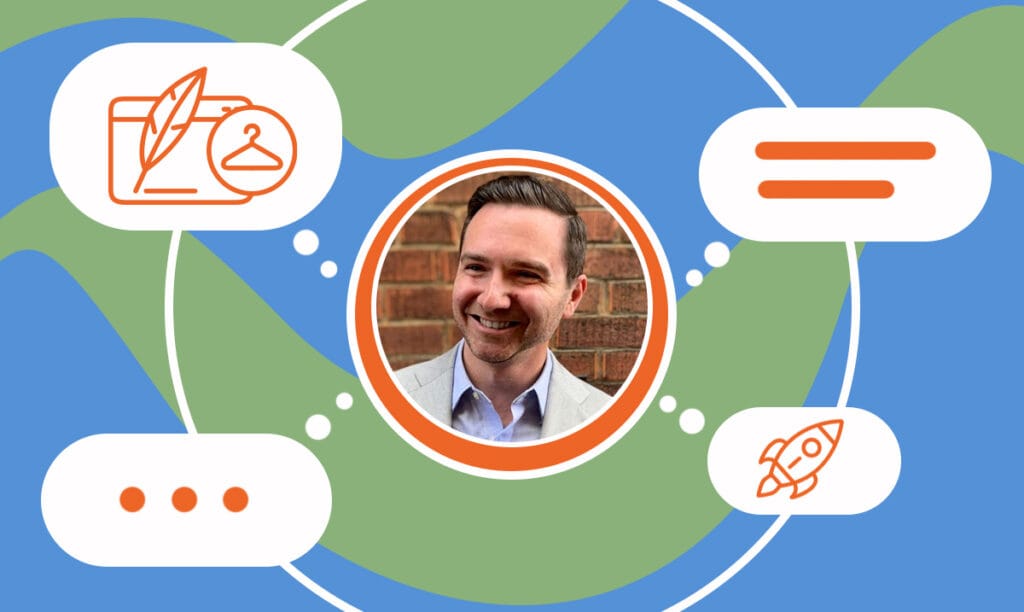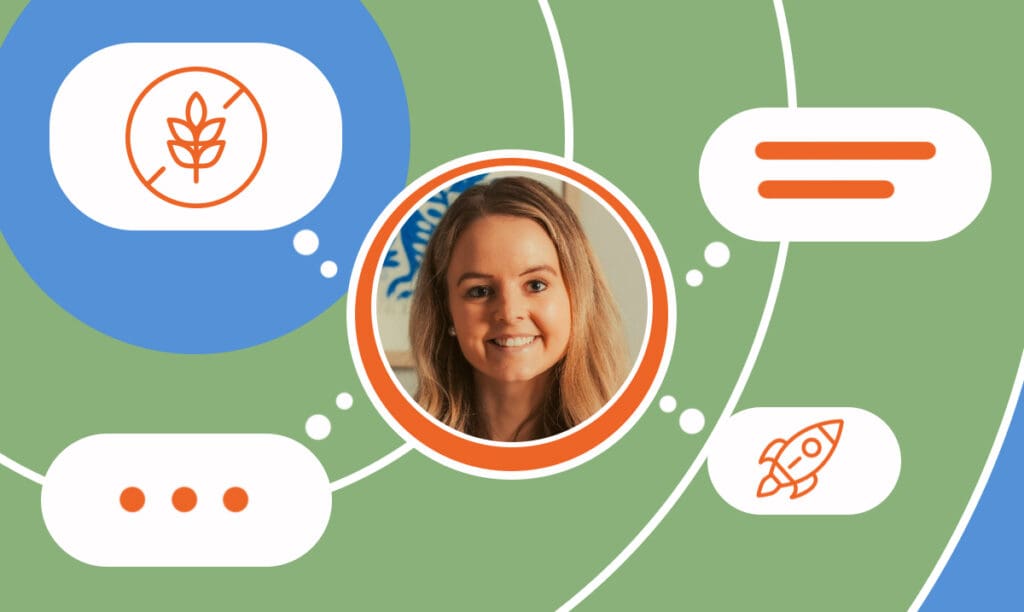Discover the creative mind and journey behind Red Ted Art, a beloved crafting blog that has captured the hearts of parents and children alike. Inthi ...
Pete Chatfield’s Journey with Household Money Saving
Written by: Esther Strauss
Esther is a business strategist with over 20 years of experience as an entrepreneur, executive, educator, and management advisor.
Published on December 5, 2023

Introducing Pete Chatfield, the creative force behind Household Money Saving. His blog stands as a guiding light, offering advice and actionable tips for anyone braving the complex and frequently turbulent seas of personal finance management. Pete’s remarkable journey from financial struggles to financial savvy is not just inspiring but also a testament to the power of determination and knowledge. With his candid insights and down-to-earth approach, Pete has transformed his life and now dedicates his energy to helping others do the same.
From tackling debt head-on to exploring ingenious ways to save and earn, Pete’s experience is a treasure trove of valuable lessons. In this interview, we delve into the core of what makes Household Money Saving a go-to resource. We’ll explore the challenges Pete faced when starting his blog, the strategies that helped him connect with a wide audience, and his unique perspective on content creation.
Inspiration for Household Money Saving
SBS – What inspired you to start the Household Money Saving blog, and how did your personal journey with debt and finances influence the content and direction of your blog?
Pete – It all started as I searched for new ways to boost my income. I remember looking through some blogs and being surprised about what I saw. There were people out there recommending money-making sites that I knew were terrible, and I wasn’t sure why. After a bit of digging around, I realised they were doing it purely for affiliate income.
I figured that there was a money-making opportunity here. I could share my genuine experiences with people and make a small income. Probably nowhere near as much as these other sites did, but that didn’t bother me. I would be writing about something I enjoyed, and it could lead to me giving up working nights at my full-time job.
Early Challenges
SBS – What were the biggest challenges you faced when you first started blogging, and how did you overcome them?
Pete – There were a lot of challenges, especially over the first year or two. Like for most people new to the world of blogging and affiliate marketing, the biggest challenge was creating a website. I spent quite a while looking for the right host and then ended up with the cheapest I could find. That’s a mistake, as your site tends to be much slower, and the service is generally quite poor.
Once my host was sorted, it was choosing a theme and designing the site. As I’m one of the least creative people out there, it was a real struggle. However, I strongly believed (and I still do) that if I could create good content that people needed, the design was only a minor factor.
But the biggest challenge was getting people to my site. I naively thought that it didn’t matter how you format your content, as long as you mention a keyword three times, it would eventually appear somewhere at the top of Google. Which obviously doesn’t work.
So, I joined a lot of Facebook groups and followed some SEO experts on Twitter. There’s a wealth of information out there, although it’s a lot to take in. Slowly, I began to work out what worked and what didn’t.
Content Strategy
SBS – How do you decide what content to create for your blog, and how do you ensure it aligns with your audience’s interests?
Pete – Most of my early content came from things I knew or was interested in. Creating posts about topics I enjoyed was fairly easy. As time has gone on, Google Search Console has become my main inspiration. I can see the keywords and phrases people have used to reach my site. This will give me an on other content to target.
But, the news and social media can always be a good source for content. You can get an idea of the types of topics on people’s minds.
Monetization Tactics
SBS – Can you share some effective ways to monetize a blog like Household Money Saving?
Pete – There are two ways I make money from Household Money Saving. The first is from display ads through a company called Mediavine. Simply, the more people who look through my site, the more money I make.
The second is through affiliate links. I’ll review services and products and then link to them. If somebody makes a purchase, I’ll earn a commission. This can be just a few cents or over $100, depending on the product.
Engagement with Audience
SBS – How do you engage with your readers and build a community around your blog?
Pete – This is where I fall down. Although I have a Facebook and Twitter profile, I rarely use it. I do have an email list, though, and I try to send out emails as often as I can.
Time Management
SBS – As a blogger and side hustler, how do you manage your time efficiently between blogging and other commitments?
Pete – Since giving up my main job, I now blog full-time. I’m probably not the best person to ask about time management. I work on my site when I feel like it. This might be just a couple of hours per day, up to ten. I know that some people prefer to have a set schedule. But sometimes, I’m just not in the mood. So there’s little point in forcing myself to sit at my computer for hours if I’m not going to do anything. Equally, if I’m writing and enjoying it, why stop?
Because I don’t have a set schedule, it means I can work around family life.
SEO and Traffic Growth
SBS – What are your strategies for search engine optimization (SEO) and driving traffic to your blog? What about recent Google Algo updates? How are you approaching the turbulent world of SEO?
Pete – The vast majority of what I write is SEO-optimised and targeted on specific keywords. That’s not what I initially set out to do, as I wanted to share my journey. But, as we all know, Google doesn’t rank that kind of thing.
However, I have lost traffic since the latest Google Helpful Content Update. That’s made me think again, and I may start to share more personal stories. But it seems to be constantly changing and it’s still too early to completely understand.
My main focus at the moment is to constantly update my content and keep it fresh. There’s little point in writing new posts to rank if the old ones keep dropping.
Tools and Software
SBS – What blogging platform, tools, and software do you use and recommend for managing and growing a blog?
Pete – I don’t use too many tools at the moment. If I’m focusing on content creation, then I’ll use Ahrefs for a month as it’s one of the best for keyword research. Otherwise, I use KeySearch as a much cheaper alternative. It’s not quite as good, but it certainly does the job for what I need.
I have Grammarly installed, which helps to cut out writing errors, although I’m still prone to them. And I also have MailerLite for my email list.
Learning and Improvement
SBS – How do you stay informed about the latest blogging trends and personal finance trends?
Pete – I like podcasts as a way of learning. I can listen to them doing the housework or walking, and it’s a great way for me to absorb information. My favourites at the moment are the Authority Hacker and Niche Pursuits. They have guests from all kinds of different backgrounds, so I can learn about topics I may never have even thought about.
Apart from that, I belong to some good Facebook blogging groups, They’re a great place to hear differing opinions, and you can ask advice from some seasoned pros.
Collaborations and Networking
SBS – How important have collaborations and networking been in your blogging journey?
Pete – I don’t do a huge amount of networking. I do the odd interview, but maybe I should do more. However, I have been approached and appeared in some major newspapers and even appeared on the BBC talking about making money.
Managing Finances
SBS – What advice do you have for managing finances or investments?
Pete – Don’t look at managing finances as a chore. Just take a few minutes each month to look through your bank account. Make sure that you’re not spending more than you should. Companies are desperate for your custom, and if one is charging you too much, switch. That 30 minutes to an hour it takes to do could save you a lot of money over a year.
And if you’re fed up with poor interest rates for your cash, think about investing. Over the long term, investments tend to perform far better compared to placing your money in a bank. However, they aren’t without risk, so it’s important to know what you’re getting into. Mutual funds managed by a large corporation like Vanguard tend to be a safer option. If you have larger sums to invest, it’s best to seek advice from a professional.
Advice for Aspiring Bloggers
SBS – What key piece of advice would you give to someone just starting out in blogging, especially in the personal finance niche?
Pete – There are a lot of people who will tell you to blog about a niche that’s profitable, even if you know nothing about it. But I recommend that you write about something you’re enthusiastic about. It’s so much easier and far more fun to create content that you enjoy. I used to love getting home from work and writing about a topic I was passionate about — it never felt like work.
And don’t put too much pressure on yourself. See it as a learning experience. It took me almost four years before I made any noticeable money, but I wouldn’t swap it for the world. Those four years taught me so much.
If you’re thinking about the personal finance niche, then be warned, it’s quite tough. Google likes bloggers to prove their “expertise” and will punish bloggers they think don’t reach their standards. Although I have seen some pretty shady finance tips at the top of Google at times!
Subscribe to Our Newsletter
and gain insider access to cutting-edge business insights and trends.
Featured Resources

How Red Ted Art Became a Crafting Sensation for Parents and Kids
Published on July 19, 2024
Read Now

Dave Bowden’s Guide to Starting a Men’s Fashion Blog
Published on April 3, 2024
Welcome to our interview with Dave Bowden, the creative force behind Irreverent Gent, a distinguished blog in the realm of men’s fashion andli ...
Read Now

How Addison LaBonte Creates Delicious Gluten-Free Recipes
Published on March 27, 2024
In an inspiring conversation with Addison LaBonte, CEO of Sweet Addison’s and Organically Addison, we delve into the innovative world ofhealth ...
Read Now
Comments